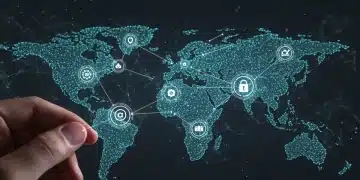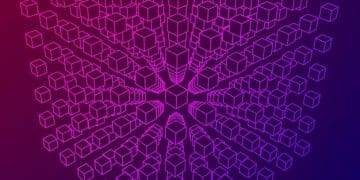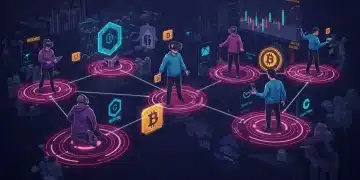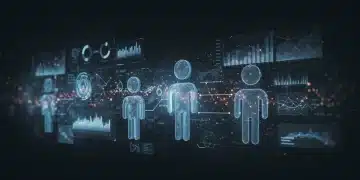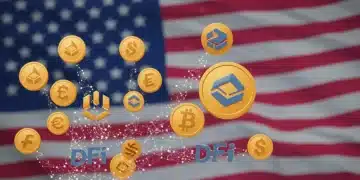DAOs & Smart Contracts: A US-Based Project Guide
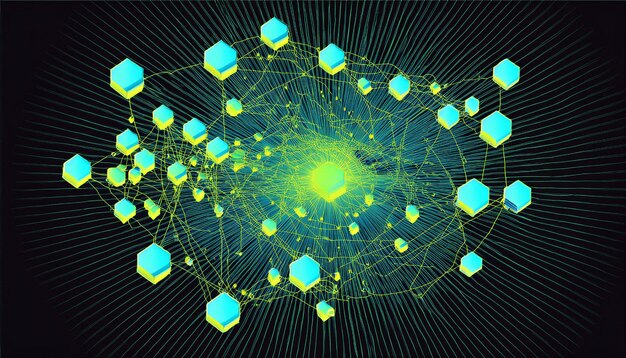
Decentralized Autonomous Organizations (DAOs) and smart contracts are revolutionizing project management and governance in the US by providing transparent, secure, and automated mechanisms for collaborative ventures.
Dive into the world of Decentralized Autonomous Organizations (DAOs) and smart contracts: A practical guide for US-based projects. Discover how to leverage these innovative technologies to build transparent, efficient, and secure organizations.
Understanding DAOs: The Basics for US Projects
Decentralized Autonomous Organizations (DAOs) are transforming how projects are organized and managed, offering a new paradigm for collaboration and governance. This section introduces the fundamental concepts of DAOs, tailored for US-based projects.
DAOs represent a shift from traditional hierarchical structures to community-led, decentralized systems. They leverage blockchain technology to ensure transparency and immutability in decision-making.
What Defines a DAO?
A DAO is essentially an organization that operates based on rules encoded in smart contracts. These rules govern everything from voting on proposals to managing funds.
Key Characteristics of DAOs
Understanding the core features of DAOs is crucial for successful implementation. They offer unique benefits and challenges compared to traditional organizations.
- Transparency: All actions and decisions are recorded on the blockchain, making them publicly verifiable.
- Autonomy: The organization operates according to pre-defined rules, reducing the need for intermediaries.
- Decentralization: Control is distributed among token holders, promoting a more democratic governance model.
DAOs are increasingly relevant in the US, with projects spanning from decentralized finance (DeFi) to community-led initiatives.
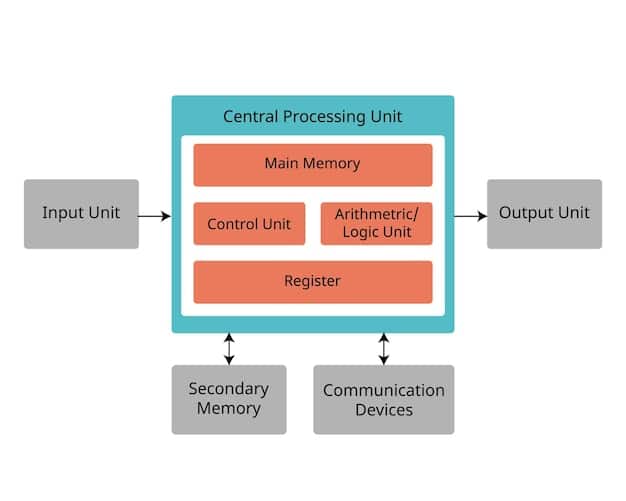
Smart Contracts: The Engine Behind DAOs
Smart contracts are the backbone of DAOs, enabling automation, security, and trust within decentralized organizations. This section explores how smart contracts function and their critical role in DAO operations.
These self-executing contracts automate agreements between parties, ensuring that actions are performed only when specific conditions are met. This reduces the reliance on intermediaries and enhances security.
How Smart Contracts Work
Smart contracts are written in code and deployed on a blockchain. Once deployed, they cannot be altered, ensuring immutability and predictability.
Benefits of Smart Contracts in DAOs
Using smart contracts within DAOs brings numerous advantages, streamlining operations and fostering trust among members.
- Automation: Smart contracts automate tasks, reducing the need for manual intervention.
- Security: They enhance security by ensuring that agreements are executed exactly as programmed.
- Transparency: All transactions and logic are publicly auditable on the blockchain.
Smart contracts are essential for automating governance processes and ensuring the fair and efficient operation of DAOs in the US.
Legal Considerations for US-Based DAOs
Navigating the legal landscape is critical for US-based DAOs to ensure compliance and avoid potential legal pitfalls. This section outlines some key legal considerations.
The legal status of DAOs is still evolving in the US, and it’s crucial to understand the potential liabilities and regulatory requirements that may apply.
Entity Formation
DAOs need to consider whether to form a legal entity to protect members from personal liability. Options include LLCs, cooperatives, and other structures.
Securities Laws
The sale of DAO tokens may be subject to US securities laws. DAOs should consult with legal counsel to ensure compliance.
Tax Implications
DAOs must address tax implications related to token issuance, revenue generation, and member compensation.
Understanding and addressing these legal aspects is vital for establishing and operating a successful DAO in the US.

Implementing Smart Contracts in Your DAO
Implementing smart contracts effectively is crucial for the success of any DAO. This section provides a practical guide for US-based projects looking to integrate smart contracts into their DAO.
Writing and deploying smart contracts requires careful planning and execution. It’s essential to choose the right blockchain platform and development tools.
Choosing the Right Platform
Selecting the appropriate blockchain platform depends on factors such as scalability, security, and cost. Popular options include Ethereum, Solana, and Polkadot.
Smart Contract Audits
Auditing smart contracts is crucial to identify and address potential vulnerabilities. Working with reputable auditing firms is highly recommended.
Governance Mechanisms
Designing effective governance mechanisms ensures that decisions are made fairly and efficiently within the DAO. This includes defining voting rules, quorum requirements, and proposal processes.
By following these steps, US-based projects can successfully implement smart contracts and build robust, decentralized organizations.
Best Practices for DAO Governance
Effective governance is essential for the long-term success of any DAO. This section outlines best practices for establishing strong governance structures and processes in US-based DAOs.
A well-defined governance framework promotes participation, transparency, and accountability, ensuring that the DAO operates in the best interests of its members.
Token Holder Voting
Allowing token holders to vote on key decisions is a cornerstone of DAO governance. Implementing secure and transparent voting mechanisms is essential.
Community Engagement
Encouraging active participation from community members fosters a sense of ownership and commitment. Regular communication and feedback channels are crucial.
Conflict Resolution
Establishing clear conflict resolution processes helps address disputes fairly and efficiently. This may involve mediation, arbitration, or other mechanisms.
By adhering to these best practices, US-based DAOs can build strong, resilient governance structures that promote long-term sustainability.
Tools and Resources for Building DAOs in the US
Numerous tools and resources are available to help US-based projects build and manage DAOs. This section highlights some of the most useful platforms and resources.
From DAO creation tools to governance platforms, these resources can streamline the process of building and operating a successful DAO.
DAO Creation Platforms
Platforms like Aragon, Moloch DAO, and DAOstack provide tools for creating and managing DAOs. They offer customizable templates and governance modules.
Governance Tools
Snapshot and Tally are popular governance tools that enable token holders to vote on proposals and participate in decision-making.
Legal and Regulatory Resources
Organizations like the DAO Research Collective and legal firms specializing in blockchain technology provide valuable insights and guidance on legal and regulatory issues.
Leveraging these tools and resources can significantly simplify the process of building and managing DAOs in the US.
| Key Point | Brief Description |
|---|---|
| 🔑 DAOs Basics | Decentralized, transparent organizations using blockchain. |
| ⚙️ Smart Contracts | Automate agreements, enhance security within DAOs. |
| ⚖️ Legal Issues | Consider entity formation, securities, and tax laws. |
| 🛠️ Tools & Resources | Platforms like Aragon streamline DAO creation. |
Frequently Asked Questions
▼
A DAO, or Decentralized Autonomous Organization, is an entity governed by rules encoded in smart contracts on a blockchain, ensuring transparent and automated operations.
▼
Smart contracts automate agreements and processes within a DAO, executing automatically when predefined conditions are met, enhancing security and trust.
▼
US-based DAOs must consider forming a legal entity, complying with securities laws if issuing tokens, and addressing tax implications related to their operations.
▼
Platforms like Aragon, Moloch DAO, and DAOstack offer tools and templates to create and manage DAOs, providing customizable governance modules and functionalities.
▼
Effective DAO governance involves token holder voting, active community engagement, and well-defined conflict resolution processes to promote transparency and accountability.
Conclusion
Decentralized Autonomous Organizations (DAOs) and smart contracts: A practical guide for US-based projects highlighted the transformative potential of DAOs in the US. By understanding the basics, navigating legal considerations, and implementing best practices, US-based projects can leverage DAOs to build transparent, efficient, and secure organizations for the future.
